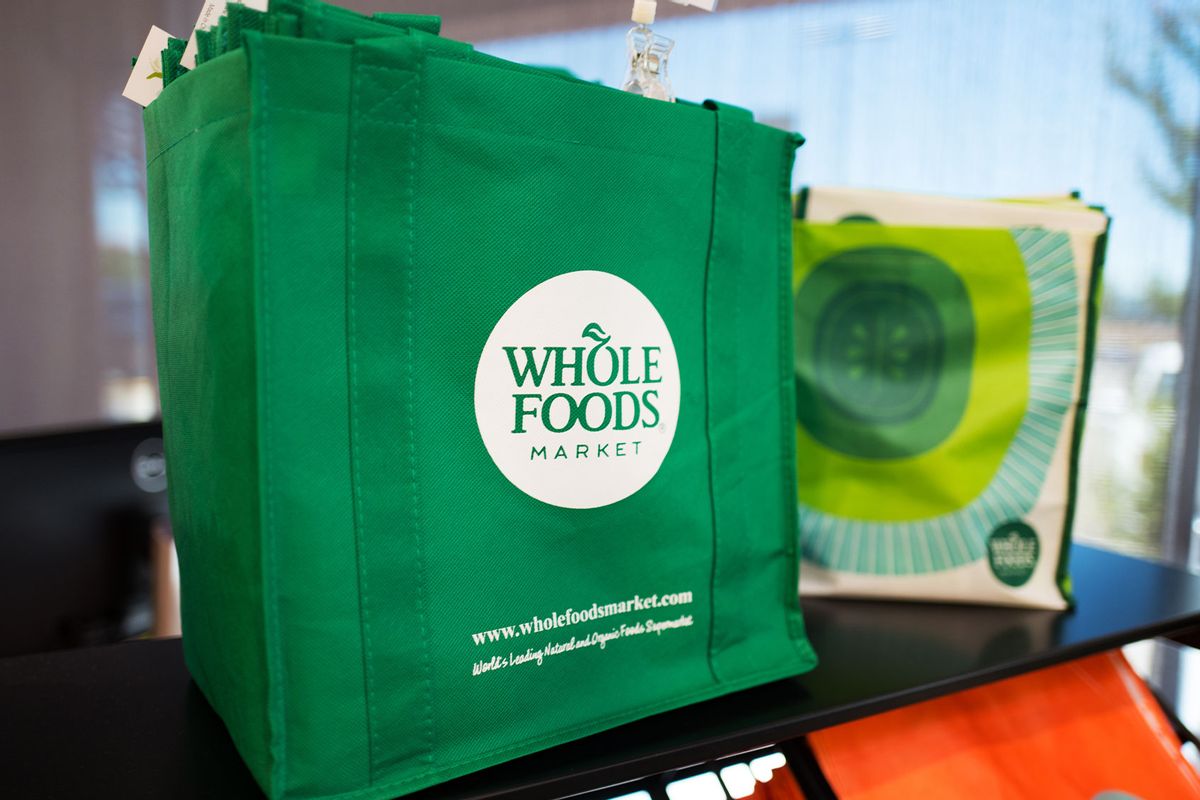The dairy section of my local supermarket is pretty grim. Not in terms of product, but just pure superficial presentation. The lights are always a little dimmer there than the rest of the store and emit a droning static hum. Somehow, the area has also become the depository for miscellaneous grocery items that have seemingly no permanent home — seasonal plastic beach toys, a rolling baker’s rack topped with a scant selection of discounted goods, a crate of chicken Rice-A-Roni boxes —which means customers are constantly side-stepping the displays and each other to reach the cream cheese and Cheddar slices.
I think that’s one of the reasons Petit Pot’s products stood out to me. The French-inspired puddings (which are actually made in Emeryville, California, and come in flavors like vanilla bean, dark chocolate and pistachio) come in sets of two for $5.79, and are served in 4-ounce glass pots, which look remarkably smart, especially when positioned next to the flimsy tubs of store-brand rice pudding.
I wouldn’t necessarily even classify myself as a pudding fan, per se, but I bought them, largely because I stood there in the aisle, imagining how nice, at the end of a long day, one of the little cool, glass pots would feel in my hand. After all, who doesn’t want a little treat?
As a millennial, I have paid close attention to the burgeoning “little treat economy” over the past several years. A little treat is exactly what it sounds like — a small luxury, typically under $15, that serves as either a reward or a consolation prize for maneuvering through the trials and tribulations of simply existing in contemporary society. The phrase really caught on during the pandemic, when we were mostly homebound, deeply anxious and largely powerless.
Some, like the New York Times, attributed that period of time to rise in popularity of these micro-moments of self-care, while slightly less generous market forecasters have blamed the trend on what they perceive to be my generation’s (as well as Gen Z’s) general sense of adulthood malaise, but I think food writer Bettina Makalintal put it best on Twitter back in 2022: “i deserve a treat when i have a bad week but i also deserve a treat when i have a good week. i simply always deserve treats.”
Now, Whole Foods is looking to cash in on that attitude among its customers and the company is already adapting their product offerings in response.
On Monday, Whole Foods Chief Executive Jason Buechel gave the keynote address at the Specialty Food Association’s annual Summer Fancy Food Show, held at New York City’s Javits Center. During the talk, Buechel showed what was in his “Whole Foods bag,” a collection of his top product finds from the show floor that exemplify the Whole Foods Market brand. One of those was Petit Pot puddings, which he said are ideal for people who “are still trying to enjoy something” without overindulging from a health or financial perspective.
This plays into Whole Foods belief that “little luxuries” are the next big food trend.
We need your help to stay independent
“TikTok creators have brought ‘Little Treat Culture’ into the zeitgeist, and we’re on board,” the company wrote in a recent report. “We know firsthand the power of a treat, like an impulse macaron buy or a fizzy, functional and flavor-forward bev. Brands are getting in on the trend by considering both cost and format — like individual serving packages that add joy without breaking a budget.”
The report continued: “Whether it’s a daily ritual like having a milk tea on your commute home or a spontaneous reward like a bath bomb in your grocery cart, get ready to make room for those little luxuries.”
Within their marketing materials, some of the items Whole Foods has characterized as little luxuries include items from both buzzy brands — like Fishwife Tinned Seafood Co. Sardines with Preserved Lemon and Sardines with Hot Peppers and Mayawell Prebiotic Beverage Sparkling Pineapple Turmeric — as well as products from the Whole Foods store brand, like 365 brand Blueberry Lavender Kombucha, Whole Foods Market Caviar and Whole Foods Market Brown Butter Latte.
"Whether it’s a daily ritual like having a milk tea on your commute home or a spontaneous reward like a bath bomb in your grocery cart, get ready to make room for those little luxuries."
Buechel’s discussion about how the chain will be approaching “little treats” comes as snack companies are also looking to adapt in response to the trend.
For instance, as “Food & Wine” reported in May, Tate’s Bake Shop announced that its bite-sized Tiny Tate’s cookies, which were originally launched in 2015, are now available in 5.5-ounce resealable bags optimized for on-the-go snacking. “While that’s an added convenience for just about anyone, a Tate’s representative noted to Food & Wine that the company aims to appeal to Gen Z’s snacking habits, which are shaped by social media trends around treat culture,” writer Marnie Shure noted.
This is something that is backed up by data, too. In 2023, the retail insights agency Acosta Group conducted a survey to better understand consumer behavior around snacking. "We wanted to learn more about the shopper path to purchase by understanding when and why shoppers are snacking, as well as where and what they're buying on different occasions or shopping trips," said Kathy Risch, the company’s senior vice president of Consumer Insights and Trends.
As a result, among recommending snack companies to explore healthier formulations and organic versions of their products, representatives from Acosta recommended brands “create promotional pricing strategies that encourage impulse buys, reassuring shoppers that it's okay to treat themselves.”



Shares